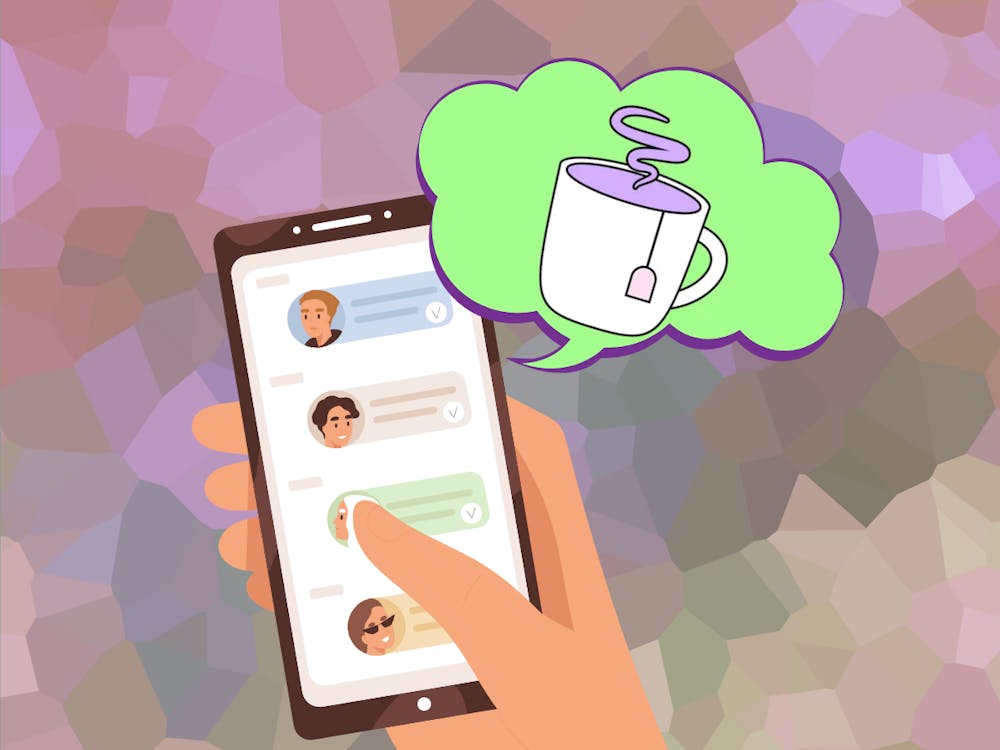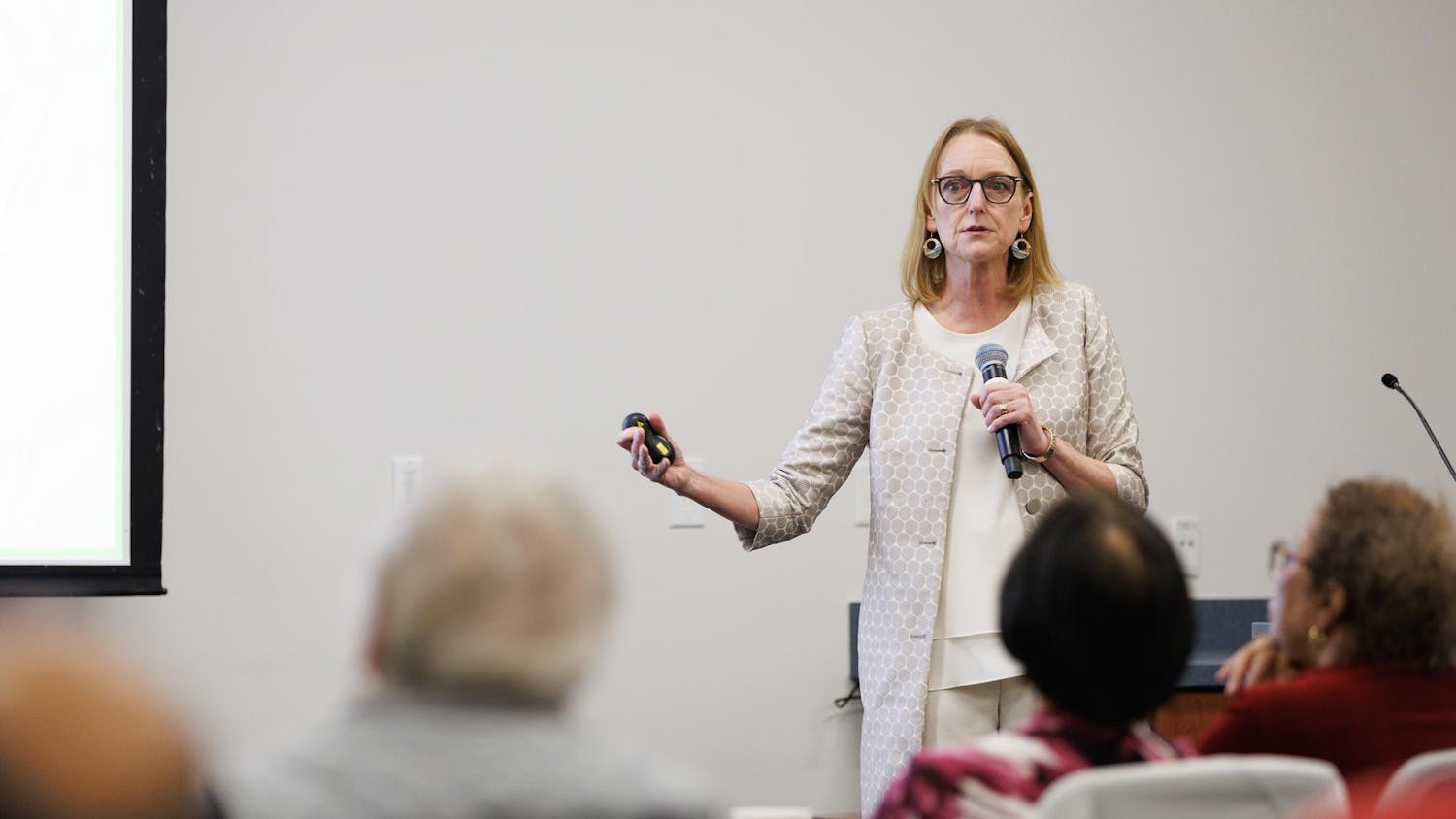Christine Lund followed every rule — filed reports, went through Greek Life, then Title IX. Each time, she was brushed aside and even told to “look up the definition of sexual harassment,” she said.
When help reporting her harassment never came from administrators, she found a different kind of accountability on Tea — an app where women can warn each other about men they have interacted with.
The mobile platform allows women to anonymously share reviews and warnings about men they’ve met, using “green flags” and “red flags” to signal positive or negative behavior.
Its stated goal is “to give women the tools they need to date safely in a world that often overlooks their protection,” its mission statement says. But it’s also faced criticism for privacy concerns, lack of verification and potential for false accusations.
Lund, a 21-year-old UF economics junior, downloaded the app while living in a new state for the summer. She wanted to go on dates, but after experiencing harassment in Gainesville, she was worried for her safety.
“That's obviously kind of dangerous for women, especially when you don't have a community established in a certain location,” she said. “This sounds like it could help me kind of background check people.”
At first, she was nervous to post any pictures of men she’d had poor interactions with. But one day she decided to see what would happen if she posted about a man she used to go out with. The post buzzed with reactions and comments validating her experience. Lund felt relieved.
“It provided some sense of closure, like, ‘OK, maybe I’m not crazy,’” she said. “Everybody was kind of experiencing the same thing as me.”
The Tea app has helped over 5.7 million women “make safer dating decisions,” the app reports, though the number of men anonymously posted there is unknown. On the Apple app store, Tea has a 4.5 out of 5 star review and is ranked No. 1 in lifestyle apps.
Gamal Fernandez, a 20-year-old UF biology junior, discovered he was on the Tea app when a friend searched his name. According to the app, he had three red flags, including claims that he was “D.L.,” which means secretly gay, and that he treated women like objects.
He was shocked to hear what women were saying about him. But when reflecting harder about what was posted about him, Fernandez took those critiques to heart.
“Hearing some uncomfortable truths was actually beneficial,” he said. “It made me think about how I come off to others.”
Still, Fernandez described the app as dystopian. He questioned its fairness, noting because the platform relies entirely on anonymous submissions, there is no reliable way to tell reality from fiction.
“It kind of feels like we’re promoting cyberbullying,” he said. “It’s crazy that someone can just look up my name, see my picture and read whatever anyone says about me, true or false.”
The app has also faced serious privacy issues. In July 2025, hackers accessed Tea’s data and stole about 72,000 user images. This included 13,000 selfies and photo IDs used for account verification when women join the app, plus 59,000 images from posts, comments and messages.
Those stolen pictures ended up on 4chan, a website known for controversial material. Tea said the hackers took no email addresses or phone numbers, but the leak still raised concerns about privacy.
UF law professor and internet law expert Jane Bambauer said the app highlights a broader tension in online accountability.
On one hand, a bad-acting man can date multiple women, spreading negative experiences, Bambauer said. Apps like Tea give women a space to relate to each other’s interactions.
Yet, she warned platforms like Tea could be misused. Even with verification systems, bots and fake accounts can make false claims appear credible. This risk of exploitation raises questions about who is responsible when false information spreads online.
Under federal law, app designers are mostly protected from liability, Bambauer said, though users who post false information are not.
“If a user spreads falsehoods about someone, they can be identified through court orders and potentially sued,” she said.
October is designated as Domestic Violence Awareness Month, where people can unite across the world to uplift the needs, voices and experiences of survivors. For those experiencing abuse or seeking guidance, the National Domestic Violence Hotline is available at 800-799-7233.
Contact Isis Snow at isnow@alligator.org. Follow her on X @isis_snoww.

Isis is a junior sports journalism student and is the volleyball beat reporter for fall 2025. This is her third semester with The Alligator. She enjoys reading, playing basketball and weight lifting in her free time.






